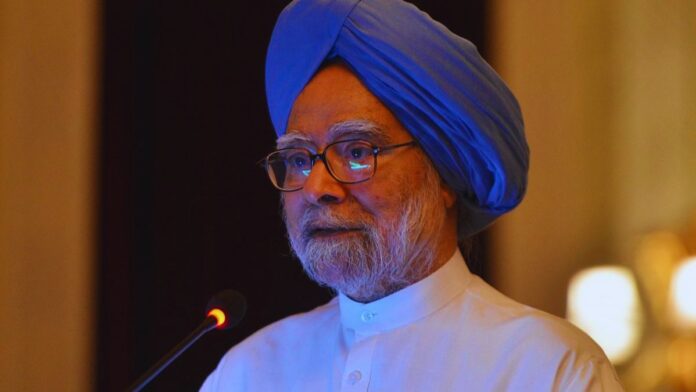Dr. Manmohan Singh, a distinguished economist and seasoned politician, has been a prominent figure in Indian politics for several decades. Born on September 26, 1932, in Gah, Punjab (now in Pakistan), he rose to prominence through his remarkable contributions to India’s economic policies and governance. This biography delves into the life and career of Dr. Manmohan Singh, tracing his journey from a humble background to becoming India’s 14th Prime Minister and leaving an indelible mark on the nation’s economy and politics.
You May Like This:
Early Life and Education of Dr. Manmohan Singh
Manmohan Singh’s early life was marked by modesty and hardship. He was born into a family of modest means, and his father, Gurmukh Singh, was a government servant. Despite the financial constraints, Manmohan Singh displayed exceptional academic prowess. He pursued his primary education in Gah and later moved to Punjab to attend Panjab University in Chandigarh.
Manmohan’s academic brilliance shone through as he pursued higher education. He earned a Bachelor’s degree in Economics from Panjab University, followed by a Master’s degree in Economics from the same institution, where he ranked first in his class. His academic achievements did not stop there, as he received a DPhil in Economics from the University of Oxford in 1962, under the guidance of renowned economist I.M.D. Little.
These formative years of rigorous education and intellectual exploration laid the foundation for Manmohan Singh’s future contributions to India’s economic landscape.
Academic Career of Manmohan Singh
After completing his doctorate at Oxford, Manmohan Singh began his academic career at Panjab University as a lecturer in Economics. His career in academia continued to flourish, and he eventually became a professor at the university. His insightful research and publications on economic issues gained recognition within the academic community.
In 1969, he was appointed as a Professor of International Trade at the Delhi School of Economics. During this time, his work on India’s export potential and trade policies attracted attention, and he was appointed as an Economic Advisor to the Indian Ministry of Foreign Trade in 1971.
Manmohan Singh’s academic career was marked by a deep commitment to economic analysis and policy formulation. He was instrumental in shaping India’s economic policies and was known for his pragmatic and well-reasoned approach to economic matters.
Entry into Government
In 1972, Manmohan Singh transitioned from academia to the world of government service when he was appointed as the Chief Economic Advisor to the Government of India. This marked the beginning of his long and distinguished career as a government economist.
During his tenure as Chief Economic Advisor, he played a crucial role in shaping India’s Five-Year Plans and economic policies. His recommendations and insights were highly regarded by policymakers and had a significant impact on the country’s economic trajectory.
In 1976, Manmohan Singh was appointed as the Secretary in the Ministry of Finance, and later as the Deputy Chairman of the Planning Commission. His responsibilities encompassed a wide range of economic and financial matters, and he continued to provide valuable counsel to the government.
Manmohan Singh: Architect of India’s Economic Reforms
One of the most defining chapters of Manmohan Singh’s career came in 1991 when he was appointed as the Finance Minister of India in the government led by Prime Minister P.V. Narasimha Rao. At this time, India was grappling with a severe economic crisis marked by high inflation, fiscal deficits, and balance of payments problems.
Manmohan Singh’s tenure as Finance Minister was transformative for India’s economy. He introduced a series of bold and far-reaching economic reforms that became collectively known as “liberalization” or “economic liberalization.” These reforms aimed to open up India’s economy to globalization, reduce trade barriers, encourage foreign investment, and modernize economic infrastructure.
Key reforms initiated by Manmohan Singh as Finance Minister:
1. Liberalization of Trade: He reduced import tariffs and removed many trade restrictions, making it easier for foreign goods and investments to enter the Indian market.
2. Industrial Deregulation: Manmohan Singh eased regulations on industries, reducing the licensing requirements and allowing businesses more freedom to operate.
3. Fiscal Reforms: He worked on fiscal consolidation, reducing the fiscal deficit, and introducing reforms in taxation.
4. Financial Sector Reforms: Under his leadership, the Indian financial sector was liberalized, allowing private banks and foreign investment in the sector.
5. Privatization: Manmohan Singh initiated the privatization of state-owned enterprises to make them more efficient and competitive.
These reforms had a profound impact on India’s economic growth and development. The liberalization policies opened doors to foreign investment, increased competition, and spurred economic growth. India’s GDP growth rate, which had been stagnant for years, began to accelerate. Manmohan Singh’s tenure as Finance Minister was instrumental in shaping India’s transition from a largely closed and regulated economy to a more open and market-oriented one.
Prime Minister
Dr. Manmohan Singh’s contributions to India’s economic reforms earned him a reputation as an economic visionary. In recognition of his leadership and expertise, he was appointed as India’s 14th Prime Minister in 2004, serving two consecutive terms until 2014. His tenure as Prime Minister was marked by a focus on economic growth, social welfare, and foreign policy.
During his time as Prime Minister, India experienced significant economic growth, with GDP consistently expanding at a robust rate. His government introduced several social welfare programs, including the Mahatma Gandhi National Rural Employment Guarantee Act (MGNREGA) and the National Rural Health Mission (NRHM), aimed at improving the living conditions of India’s rural population.
Foreign Policy and Global Engagement
Manmohan Singh’s tenure as Prime Minister also saw India’s increased engagement with the global community. He played a key role in forging strategic partnerships with major world powers, including the United States and Russia. His government sought to strengthen economic and diplomatic ties with countries in Southeast Asia, Africa, and the Middle East.
One of the notable achievements during his premiership was the signing of the historic U.S.-India Civil Nuclear Agreement in 2008. This agreement, which allowed India access to civilian nuclear technology and fuel, marked a significant shift in India’s global standing.
Challenges and Controversies Faced by Manmohan Singh
While Dr. Manmohan Singh’s tenure as Prime Minister was marked by significant achievements, it was not without its share of challenges and controversies. One of the most significant challenges was dealing with corruption scandals and allegations within the government, notably the 2G spectrum allocation scam and the coal allocation controversy. Critics argued that his leadership during these crises was weak, and the scandals tarnished the image of his government.
Additionally, Dr. Manmohan Singh faced criticism from political opponents who accused him of being a “silent” or “weak” Prime Minister. Some argued that he was overshadowed by the more assertive leaders of his political party, the Indian National Congress.
Retirement from Politics
After serving two terms as Prime Minister, Manmohan Singh retired from active politics in 2014. Despite his retirement, he continued to be a respected voice in public discourse, especially on economic and policy matters. His insights and expertise were sought after by policymakers, academics, and international institutions.
Legacy and Impact
Dr. Manmohan Singh’s legacy in Indian politics and economics is profound. He is often credited with leading India through a period of economic transformation, opening up
the country’s economy to the world, and propelling it onto a path of rapid economic growth. His leadership as Finance Minister in 1991 and subsequent tenure as Prime Minister laid the groundwork for India’s emergence as a major global economic player in the 21st century.
In addition to his economic contributions, Manmohan Singh is known for his dignified and statesmanlike approach to governance. He maintained a calm and composed demeanor even in the face of political challenges and controversies. His personal integrity and dedication to public service earned him respect across party lines.
As a scholar, economist, and politician, Manmohan Singh’s legacy is firmly etched in the annals of India’s history. His contributions to economic reforms, his leadership as Prime Minister, and his dedication to public service have left an indelible mark on the nation. Dr. Manmohan Singh’s life and career exemplify the power of education, intellect, and integrity in transforming a nation’s destiny.




[…] Dr. Manmohan Singh: The Economist Statesman […]